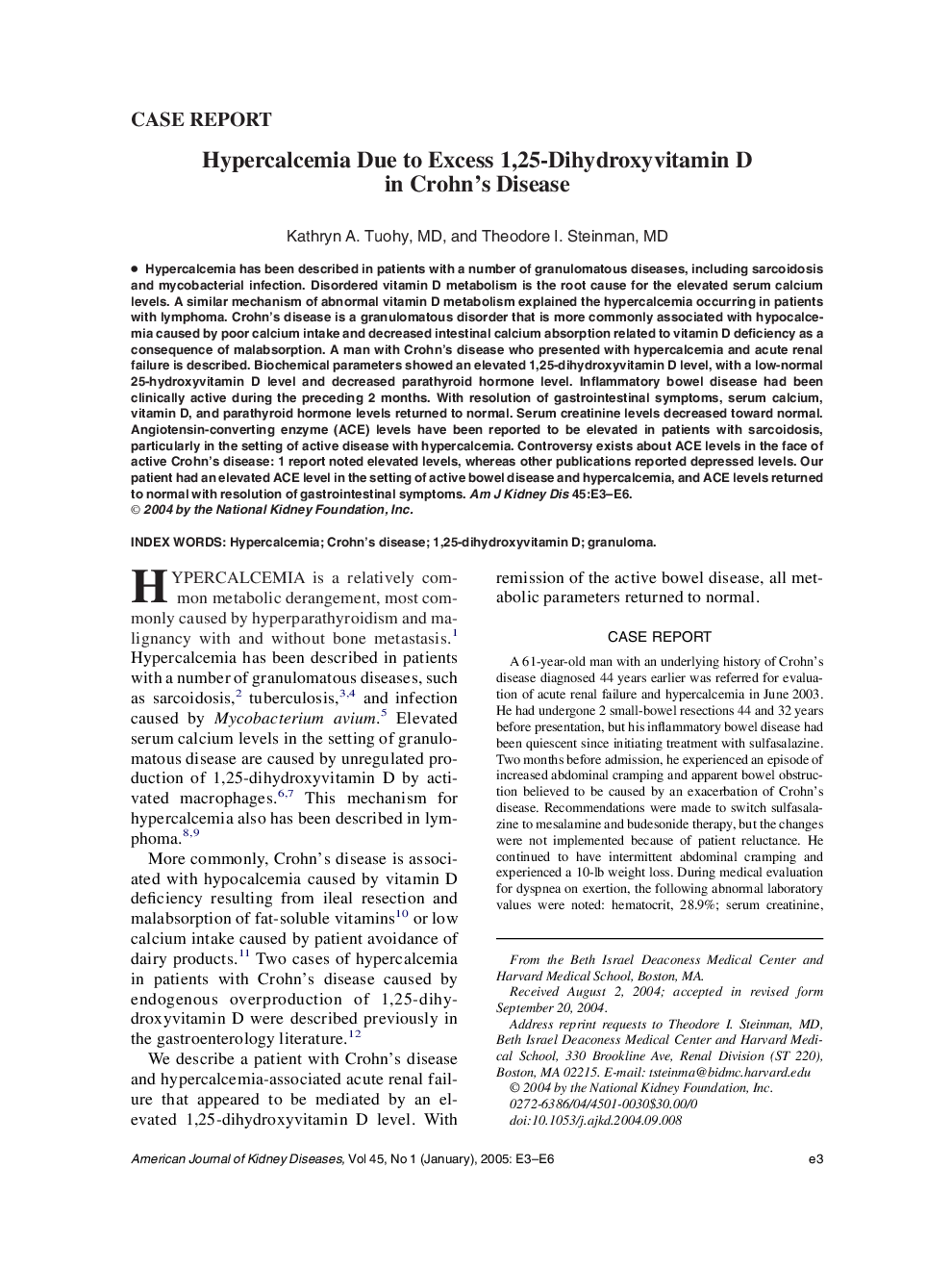| Article ID | Journal | Published Year | Pages | File Type |
|---|---|---|---|---|
| 10047810 | American Journal of Kidney Diseases | 2005 | 4 Pages |
Abstract
Hypercalcemia has been described in patients with a number of granulomatous diseases, including sarcoidosis and mycobacterial infection. Disordered vitamin D metabolism is the root cause for the elevated serum calcium levels. A similar mechanism of abnormal vitamin D metabolism explained the hypercalcemia occurring in patients with lymphoma. Crohn's disease is a granulomatous disorder that is more commonly associated with hypocalcemia caused by poor calcium intake and decreased intestinal calcium absorption related to vitamin D deficiency as a consequence of malabsorption. A man with Crohn's disease who presented with hypercalcemia and acute renal failure is described. Biochemical parameters showed an elevated 1,25-dihydroxyvitamin D level, with a low-normal 25-hydroxyvitamin D level and decreased parathyroid hormone level. Inflammatory bowel disease had been clinically active during the preceding 2 months. With resolution of gastrointestinal symptoms, serum calcium, vitamin D, and parathyroid hormone levels returned to normal. Serum creatinine levels decreased toward normal. Angiotensin-converting enzyme (ACE) levels have been reported to be elevated in patients with sarcoidosis, particularly in the setting of active disease with hypercalcemia. Controversy exists about ACE levels in the face of active Crohn's disease: 1 report noted elevated levels, whereas other publications reported depressed levels. Our patient had an elevated ACE level in the setting of active bowel disease and hypercalcemia, and ACE levels returned to normal with resolution of gastrointestinal symptoms.
Related Topics
Health Sciences
Medicine and Dentistry
Nephrology
Authors
Kathryn A. MD, Theodore I. MD,
